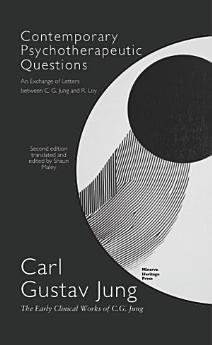Contemporary Psychotherapeutic Questions: An exchange of letters between C. G. Jung and R. Loy.
ഈ ഇ-ബുക്കിനെക്കുറിച്ച്
A beautiful example of the debates within the budding 20th-century field of Psychology, Dr. Loy and Dr. Jung discuss various aspects of psychoanalysis, the role of the therapist and the nature of psychological healing. Dr Loy, who practiced suggestive therapy and later studied Freudian psychoanalysis, expresses skepticism about some of Freud's interpretations, particularly the universal symbolism of dreams and their exclusively sexual connotations.
Jung responds by acknowledging the value of various psychotherapeutic methods, including suggestive therapy, while stressing the importance of understanding the moral conflicts behind neurotic fantasies. He criticizes the cathartic method and expresses doubts about the therapeutic value of reliving traumatic events, which he sees as often fantastical or exaggerated. Both discuss the role of the therapist's personality in the healing process and the importance of the patient's trust in the therapist. Jung criticizes the use of hypnosis and suggestive methods, preferring direct engagement with the patient's psyche. He argues for a psychoanalytic approach that seeks to understand underlying moral conflicts and encourages the patient's self-discovery and personal growth.
Loy's research explores the practical application of psychoanalysis, the challenge of conflicting literature in the field, and the potential influence of the therapist's suggestions on the patient's psyche. Jung emphasizes the importance of the analyst's neutrality and the need for the patient to find his or her own path to healing, arguing against any form of suggestion that would impose the therapist's beliefs or goals on the patient.
This updated edition offers a fresh, accessible translation of Carl Jungs early scientific writings, originally intended for an academic audience. The translation is accompanied by a thought-provoking Afterword by the translator, which explores the philosophical foundations, historical context, and lasting impact of Jungs ideas from his early clinical work under Freud to his later metaphysical philosophy such as Aion and Synchronicity. Beyond clarifying this work specifically, the Afterword situates it within the broader framework of Jungs intellectual and clinical evolution, offering readers a deeper understanding of his early contributions in like of Schopenhauer, Einstein, Nietzsche and other influences on early Psychology. Supplementary materials, including a detailed timeline of Jungs life and works, further contextualize his theories within their personal, cultural, and historical dimensions. This edition ensures that both newcomers and seasoned scholars can fully appreciate the origins and significance of Jungian psychology, from it's humble roots to it's modern implications.











